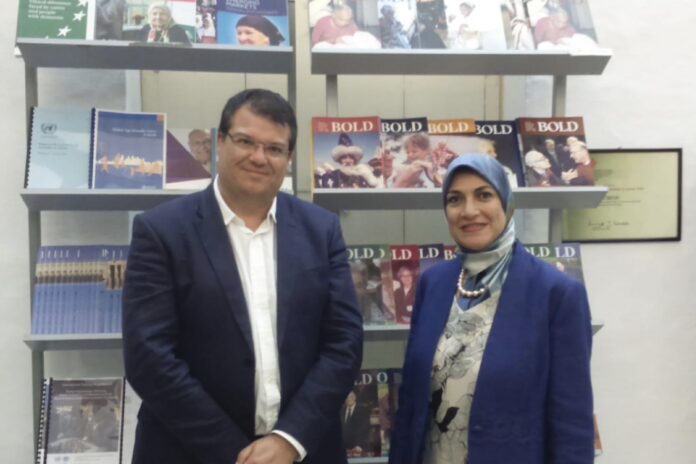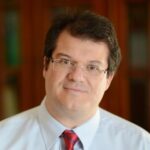In July 2019, Professor Shereen Hussein visited the United Nations’ Institute on Ageing INIA to discuss implications of population ageing in the Middle East and North Africa region and understand potential collaboration to build relevant research and practice capacity in the region. Professor Marvin Formosa, Director of INIA, discussed the Institute’s priorities and highlighted previous work and links within the region. One role of INIA is to empower and build the capacity of low and middle-income countries to face the challenges posed by population ageing in the most effective ways. The Institute provides multi-disciplinary education and training in specific areas related to ageing, while also acts as a catalyst for knowledge exchange on issues about ageing welfare.
Professor Hussein held a series of discussions around the potential role of INIA in facilitating building capacity and raising awareness in the region. INIA actively engages in the region and runs regular workshops and training activities specific to gerontology and ageing aspects. The Institute provides multi-disciplinary education and training annually in the following areas: Social Gerontology, Health Promotion and Policy Formulation.
Professors Hussein and Formosa discussed potential future collaboration opportunities both about building capacity and research partnership. They identified several possible topics and areas of engagement for future development. These included supporting the development of long-term care practice in general long-term care support and more specifically, to dementia and palliative care. They identified building research capacity through dedicated methodology and research design training initiatives as critical activities for the region. They discussed the importance of designing and orienting activities within an understanding of the cultural, geographical and socio-economic context of the region.
Funding:
This activity received funding from the University of Kent, GCRF Partnership Fund in 2019 and was led by Professor Shereen Hussein.
A more extended version of this blog is published here.




